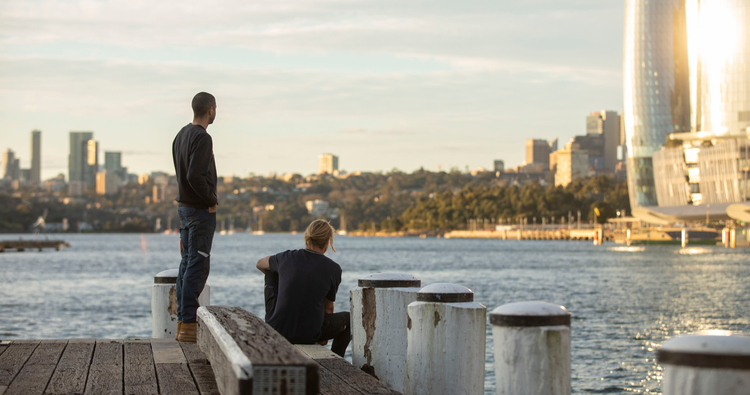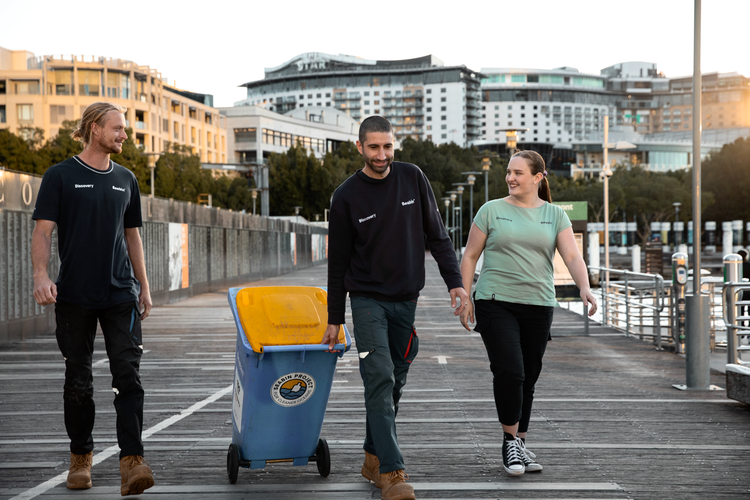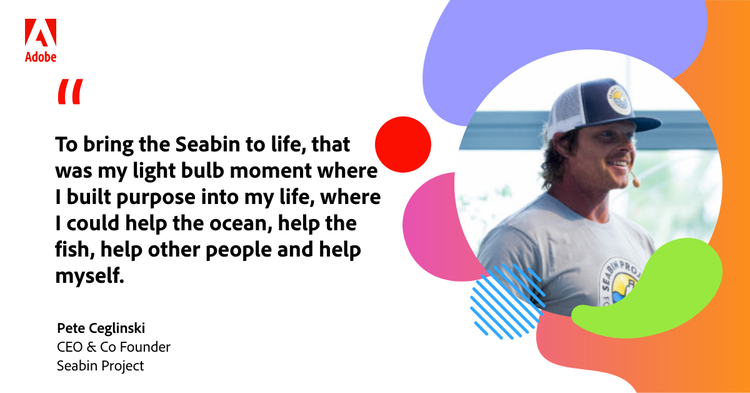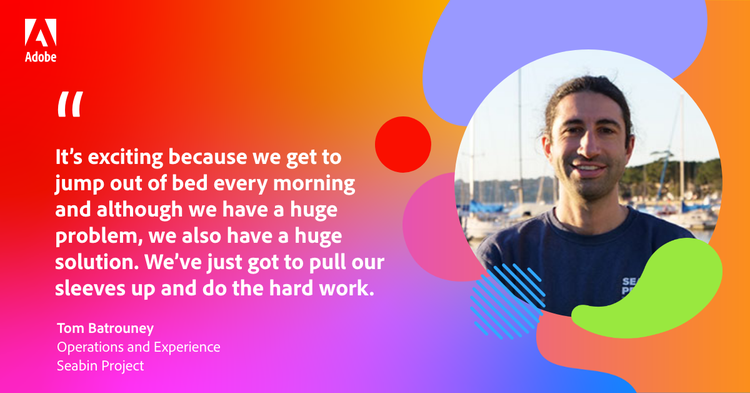How Seabin Project is cleaning up oceans around the world to #CreateWaves

The ocean is what makes our planet habitable. And despite the crucial role it plays in our lives, we still know more about the surface of Mars than we do about the deepest parts of the ocean.
Seabin Project is implementing creative and practical solutions to gather essential information to understand our oceans better and help reduce plastic waste. For Seabin, it’s about focusing on solutions, positivity, and demonstrating the tangible actions we can take to keep our oceans clean.
As we continue through the second year of the United Nations Ocean Decade, Seabin Project's CEO and co-founder Pete Ceglinski and Tom Batrouney, whose role is Operations and Experience, share why there has never been a more critical time for global sustainability efforts.
It all started with a simple idea: “If we can have rubbish bins on land then why not have them in the ocean?”
Seabin Project
Seabin Project's mission is to fill a knowledge gap and create an important set of data that can be shared with the public, businesses and the government to further educate people about the importance of ocean conservation, because "you can't fix a problem if you don't know it exists in the first place," says Batrouney.

The moment the first Seabin was put in the water and provided results was when Ceglinski realised the scale of impact that Seabin could have and the visual impact it provided. “It gave me a sense of purpose and it made me feel good. And then it terrified me because of the scale of the problem and then the scale of the solution was terrifying, exhilarating and just challenging, but an epic challenge,” he says.

The time to act is now
The ocean holds the key to an equitable and sustainable planet. Through its bins and data collection, Seabin is building an information set that has never been created before and then using this data to communicate a critical need for change.
A single Seabin is "capturing 1.7 metric tons of microplastics and plastic fibres every year. We’re filtering 600 thousand litres of water every day and all for less than a cost of a coffee”, says Ceglinski.
Batrouney also shared that “in a 12-month period in Sydney harbour, Seabin collected enough plastic bags to cover 37 football fields.”

Seabin Project is far more than a product. The company's goal is to have pollution-free oceans for future generations by changing community behaviour.
“From the moment we put the Seabin in and it started working and pulling in trash, it was the visual impact of ‘oh my god, this is it’,” says Ceglinski.

Ceglinski stresses that, “as the thing that gives us life, and with one in every three breaths we take generated through it, if we didn’t have the ocean the planet would stop.”
Ocean conservation is a global effort
Seabin is setting out to change human behaviour, conquer cities and a global plastic pollution issue, but they can't make a global change alone. Using the collected data, they plan to strengthen the understanding of ocean health and educate communities to support new policies and legislation from international bodies and local governments.
“Not any one person or business can solve the world’s problem of plastic pollution. It’s community driven solutions that will fix the world’s greatest problems.” says Ceglinski.

With a mission to clean up 100 cities by 2050, Seabin needs communities to help make a difference. According to Ceglinski, "plastic is not the problem. If you boil it back down, it comes down to education and being a bit smarter with an inanimate object.".
Adobe and Seabin share a strong belief that there are many things people in communities can do to help. Using your creativity, using your voice, "get the message out there, we can fix it, there are solutions." says Ceglinski.

Using people, platform, creativity and innovation to make change
As activists solving environmental problems, it’s essential to the founders of Seabin that they are constantly considering how to reduce their emissions and carbon footprint.

Individuals and businesses should strive to make conscious decisions that will reduce the impact they are having on the ocean and the environment. For Seabin, Adobe Creative Cloud and Adobe Document Cloud have helped them to focus on their own footprint and have assisted the company’s shift to a paperless system.

We keep our homes clean, so why don’t we keep the environment clean?
Adobe and Seabin are calling on the community to use their voice and creativity to #CreateWaves, advocate for ocean protection and share the ways we can all play a direct and significant role in reducing the waste entering our waterways and oceans.
Discover more in The Ocean Agency’s Creative Toolkit for raising ocean awareness.
Learn more about how Seabin Project is cleaning up oceans around the world here.
